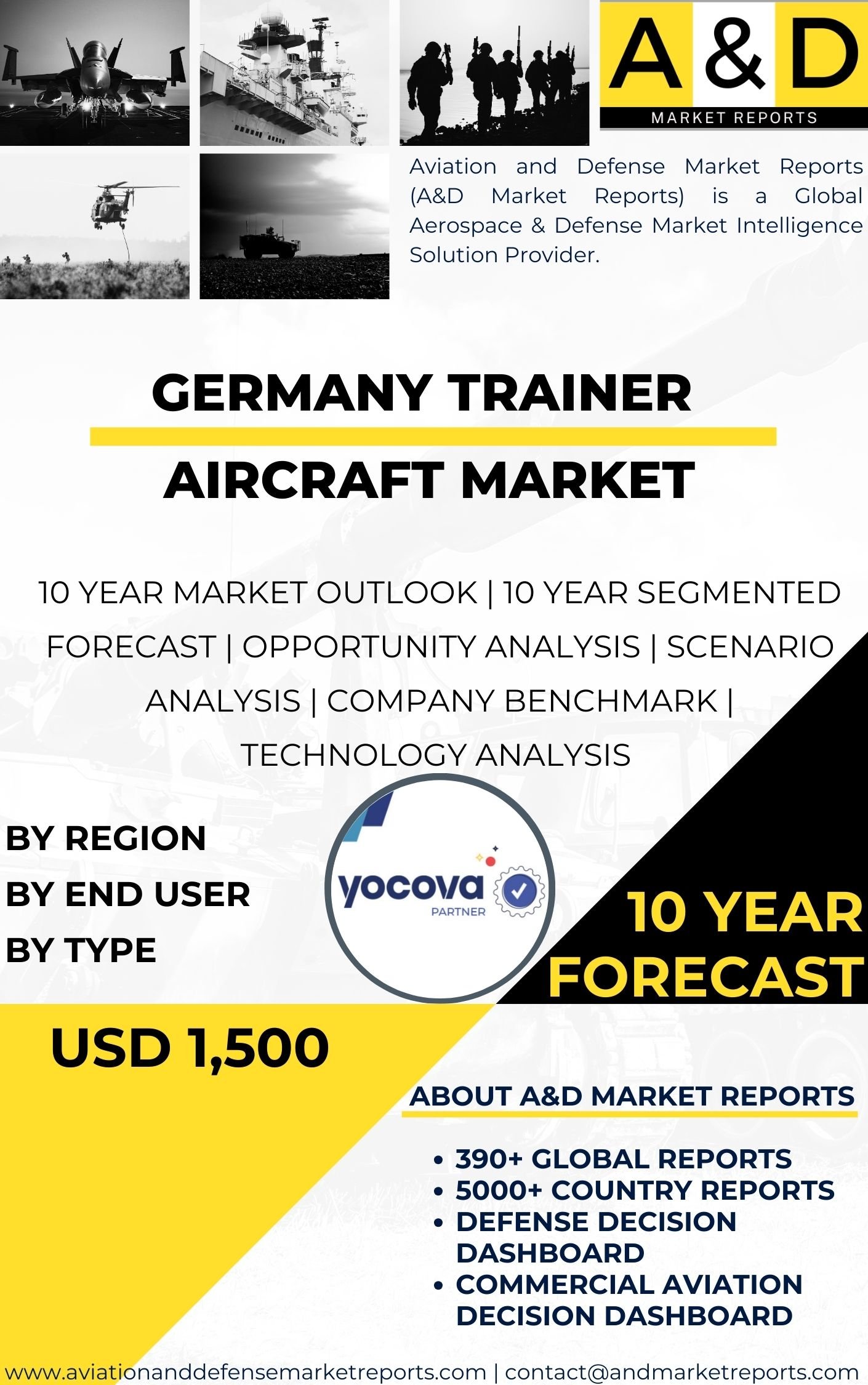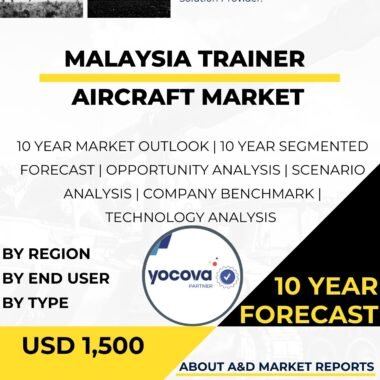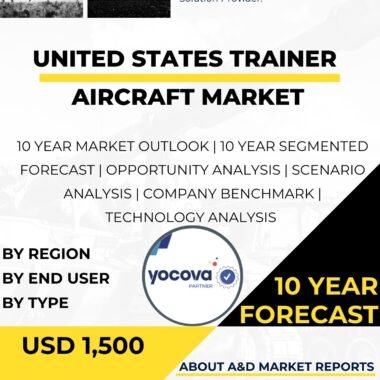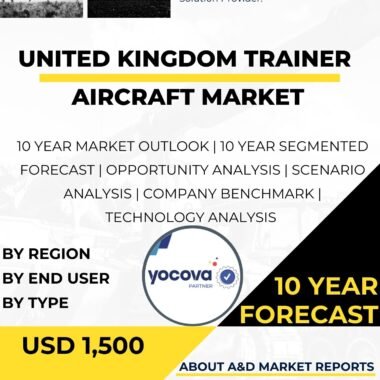Description
Germany trainer aircraft market has been a significant and dynamic segment within the country’s defense and aerospace industries. Trainer aircraft are specialized planes designed to train military pilots and provide them with the necessary skills and experience before transitioning to more advanced and combat-ready platforms. These training aircraft play a crucial role in enhancing Germany’s aviation capabilities, ensuring a steady supply of qualified pilots, and maintaining the readiness of its air force.
The Germany trainer aircraft market is influenced by several factors, including the country’s commitment to national defense, its role as a key member of NATO, and its recognition of the importance of advanced training technology in modern air operations. As a leading European economy and a technologically advanced nation, Germany understands the significance of investing in cutting-edge trainer aircraft to maintain aviation excellence and meet the challenges of the evolving security landscape.
The market encompasses both domestic production and imports of trainer aircraft and related technologies. Germany has reputable defense contractors and technology firms that develop and manufacture a wide range of training aircraft, including basic trainers, advanced trainers, and jet trainers. These companies cater to both the domestic and international markets, supplying trainer aircraft to various customers worldwide.
The Germany trainer aircraft market is characterized by a focus on innovation and technological advancements. Companies in Germany continuously strive to develop state-of-the-art training aircraft with improved performance, safety features, and simulation capabilities. The integration of advanced avionics, cockpit displays, and computer-based training systems has been a key area of research and development to enhance the performance of German trainer aircraft.
The export potential of German trainer aircraft is another critical aspect of the market. Germany’s reputation for producing high-quality and reliable defense equipment has made it an attractive supplier for other countries seeking advanced training solutions for their air forces. However, export decisions are subject to international regulations and political considerations, especially when it comes to the export of sensitive military technologies.
The Germany trainer aircraft market also addresses challenges related to cost-effectiveness and the need to balance investments in training aircraft with other defense priorities. Trainer aircraft are essential for pilot training, but they must be procured and maintained in a manner that optimizes cost efficiency and aligns with Germany’s broader defense budget.
Moreover, the Germany trainer aircraft market must address concerns related to pilot training capacity and the need to maintain a steady supply of qualified pilots. Ensuring that the training pipeline is efficient and can meet the demands of the air force is critical for maintaining operational readiness.
In recent years, there has been a growing emphasis on the use of simulation and virtual training technologies in pilot training. Germany is investing in research and development to explore how virtual training systems can complement live flight training and provide cost-effective and realistic training scenarios for pilots.
Challenges faced by the Germany trainer aircraft market include the need to adapt to evolving training requirements and emerging technologies. As the nature of aviation warfare evolves, trainer aircraft must continuously evolve to meet new challenges, including the integration of unmanned systems, cyber warfare training, and advanced simulation capabilities.
The market also needs to address concerns related to sustainability and environmental considerations. Efforts are being made to develop more fuel-efficient and environmentally friendly trainer aircraft to minimize the impact on the environment.
In conclusion, the Germany trainer aircraft market is a significant and dynamic segment within the country’s defense and aerospace industries. Advanced training aircraft play a crucial role in enhancing Germany’s aviation capabilities, providing The market is driven by Germany’s commitment to technological advancement, advancements in trainer aircraft, and the need to balance investments with other defense priorities. As Germany continues to invest in research and development and explores innovative training solutions, the trainer aircraft market is expected to play an increasingly pivotal role in shaping the country’s aviation capabilities and ensuring the readiness of its air force.




